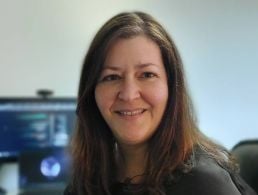This week’s interviewee is Nicky Gogan (pictured), director of the Darklight Film Festival, a film and arts symposium coming to Dublin 21-23 June.
What does the internet mean for the film industry in Ireland?
As a huge advocate of digital filmmaking and low-budget projects, I think it gives people an opportunity to make films that would never, ever have been possible 10 or 15 years ago.
Also, the internet has made stars out of people. Recently some unknowns put a series of skits online that were picked up by NBC’s Saturday Night Live.
How do technology and contemporary filmmaking in Ireland blend?
Technology is omnipresent at this stage. For some people it’s just a part of a special effects process — they can use a blue screen and create fantastical worlds and put their actors in there.
On the opposite end of the scale you have independent filmmakers totally shooting from the hip, using alternative techniques like spy cameras. Both are using the technology as a part of their creative practice but in very different ways.
What are your views on YouTube?
The issue at the moment is that everyone is trying to figure out how they’re going to make money out of YouTube. There’s a huge appetite for it, with six out of 10 adult internet users viewing it every day.
On one hand Viacom is suing YouTube because it wants YouTube to take the content down; on the other end of the scale you have filmmakers looking at it as a new way of getting their work seen that never existed before.
Before companies in the broadcasting industry try to take it down they should consider how much it has benefited the moving image, both as a filmmaking tool and a valuable archive.
Do sites like YouTube make it difficult for independent filmmakers to get publicity amongst the glut of home video content?
No. There’s plenty of space, it’s virtual. For every couple of rubbish films up there somebody else has achieved access to making amazing art.
How does digital filmmaking impact the school-going generation?
We ran a workshop for schoolchildren using mobile phones to make short films because we wanted it to be sustainable. We used shareware software to edit so that they could continue to create after the workshop was finished.
We were also aware of ‘happy slapping’ and ran the workshop aiming to show school kids how to use the mobile phone in a positive way.
By Marie Boran





